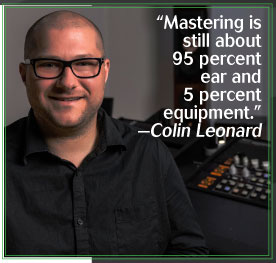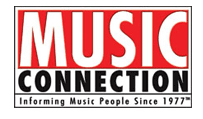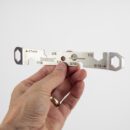Admittedly not the sexiest aspect of the music-making process, mastering nevertheless remains essential to the success of your music. With MC’s exclusive Masters of Mastering interviews, you get a better understanding of the mastering engineer's skill, and how it can enhance—perhaps even salvage—your recordings.
By Rob Putnam
Colin Leonard
Company: SING Mastering
Clientele: Kimbra, Wale, Justin Bieber
Contact: SING Mastering, 404-827-8503
Though Leonard studied classical guitar in college, he recognized limitations in that career choice so he began to work with an engineer friend. Moving to Atlanta, GA, he started to mix when another friend asked if he was interested in mastering. Today, Leonard maintains that in a mastering studio the rectangular ratio is the most important thing—his new studio at SING Mastering is more than 30 feet long. Recently he mastered Wale’s “Bag of Money,” which is doing well on the R&B and rap charts. The busy Leonard’s latest project is mastering Leona Lewis’ new album Glassheart.
What are the best ways to prep a mix for mastering?
Not too loud, obviously. Having a little room to work with is a good thing. The best masters are ones that you don’t have to mess with the balance very much. A heavy-handed approach in mastering is the wrong approach. Doing as little as possible is the best way to go.
Which mix problems can be addressed in the mastering stage? Which can’t?
If it’s a little too bassy or a little too bright––it needs some clarity in the midrange––that I can fix. If it’s an MP3 or distorted, I can’t fix it.
Do artists ever send you MP3s?
I try to stay away from the compressed formats. I ask for WAV files. I don’t master an MP3 unless that’s all a client has.
Have the do-it-yourself mastering tools improved to the point that musicians can achieve a better-than-passable master at home?
Some of the plug-ins are getting better but it’s still about 95 percent ear and 5 percent equipment. When you master at home, the problem is one of experience. Knowing what you’re listening to and having an accurate environment is what’s missing.
What’s the ideal format for mastering-ready mixes?
24-bit or higher and whatever sample rate the project was recorded in––no sample rate conversion. Either WAV or AIFF files.
What’s your take on the Mastered For iTunes initiative?
It’s a step in the right direction. I look forward to the day when you can buy a full resolution, 16 bit/44k file or higher on iTunes. They do sound better than the old iTunes format, but it’s not quite far enough. It’s merely a matter of time until we get even higher quality.
What’s the biggest mastering challenge you’ve ever faced?
There aren’t that many professional studios and people don’t often have the money for a pro engineer. So they end up with five plug-ins on every instrument.
The biggest problem that’s not reversible is the stereo expander plug-ins. They screw with the phase and I can’t do much to help that.
What’s the biggest technical challenge/problem you’ve ever gotten out of?
I had mastered a project and it had a lot of bass. It was as loud as it was going to get without sounding bad. I was asked to make it louder. That’s when I started using this new analog-based process for which I have a patent pending called the SING Process. It allows me to avoid using a digital limiter and get things as loud as commercial releases without distortion and saturation at the low end.
What does the future of mastering hold?
Mastering has become more important because of home production and mixing. It’s nice to have a last step from a guy with a lot of experience and a good listening environment. Some of the indie guys are eager to improve their mixing skills so it’s fun to be able to talk through those things.
What do you say to people starting out as mastering engineers?
It takes a lot of listening, a lot of practice and trying not to do too much to a mix. I still do new stuff on different mixes all the time. Figuring out what [a mix] doesn’t need is more important than what it needs.













